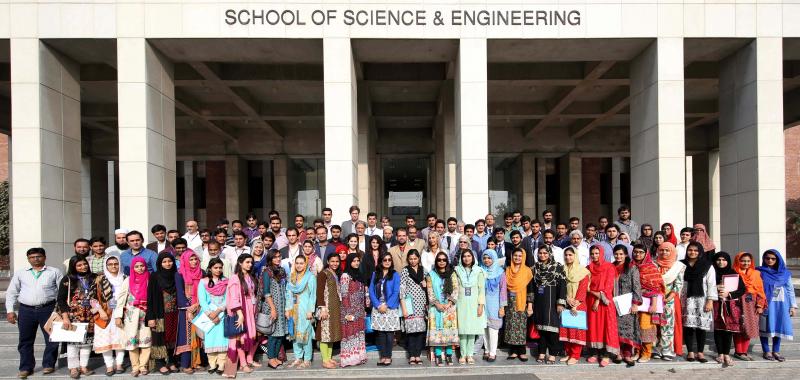
Storage, environmental flows, groundwater legislation, climate change and smart agriculture are some of the most important issues for Pakistan’s water security. A three-day school on Water, Policy and Governance was organised by the Centre for Water Informatics and Technology (WIT) in collaboration with Lead Pakistan and Nestle, Pakistan.
This school, a second edition of a multi-disciplinary training workshops organised by LUMS, hosted over 130 participants from national and international universities including students and academia as well as professionals engaged with water management, climate science and agriculture. A diverse range of technical, economic and public policy issues in the water sector, including hydro-diplomacy, interprovincial water issues, groundwater management and water laws in Pakistan were discussed.
Leading water experts including Dr. Pervaiz Amir, Global Water Partnership, Mr. Rao Irshad Ali Khan, Chairman IRSA, Dr. Arif Anwar, International Water Management Institute, Dr. Hassan Abbas, Lead Pakistan, Dr. Muhammad Javed, Punjab Irrigation Department, Mr. Feisal Naqvi, Haidermota BNR, Mr. Rafay Alam, Saleem, Alam & Co. delivered talks on key scientific, legal and policy issues concerning water in Pakistan. The workshop used a combination of lectures, panel discussions, interactive surveys and role-play simulations to engage the participants.
Dr. Abubakr Muhammad, Director WIT and Prof. Dr. S. Sohail H. Naqvi, Vice Chancellor, LUMS elaborated on the role of the Centre for Water Informatics and Technology’s research and outreach activities that have been critical in building capacity in the water sector, helping bridge the gap between academia and practice, and establishing a fruitful co-operation between the academic community and industry, development agencies, NGOs, public administration, local communities, and other relevant institutions.
Students came from LUMS, Government College, Lahore, BZ University, Multan, University of Poonch, Azad Jammu and Kashmir, University of Haripur, Haripur, University of Punjab, Lahore, Forman Christian College University, Lahore, University of Chicago, USA, University of Sussex, UK and King’s College London, UK. The workshop was also attended by water professionals from the public and private sectors, and from non-government organisations, including the Ministry of Climate Change, Punjab Irrigation Department, Lead Pakistan, Helvetas Swiss Corporation, Nestle Pakistan and the Coca Cola Export Corporation.
The organisation of the school’s programme was led by WIT affiliated LUMS faculty and researchers including Dr. Sanval Nasim, Ms. Laila Kasuri and Ms. Fazilda Nabeel. The centre currently boasts a dozen of LUMS affiliated faculty from across disciplines, a dedicated core team and a world-class advisory group with membership from MIT, Stanford, Nestle, GWP, PAC and World Bank.







